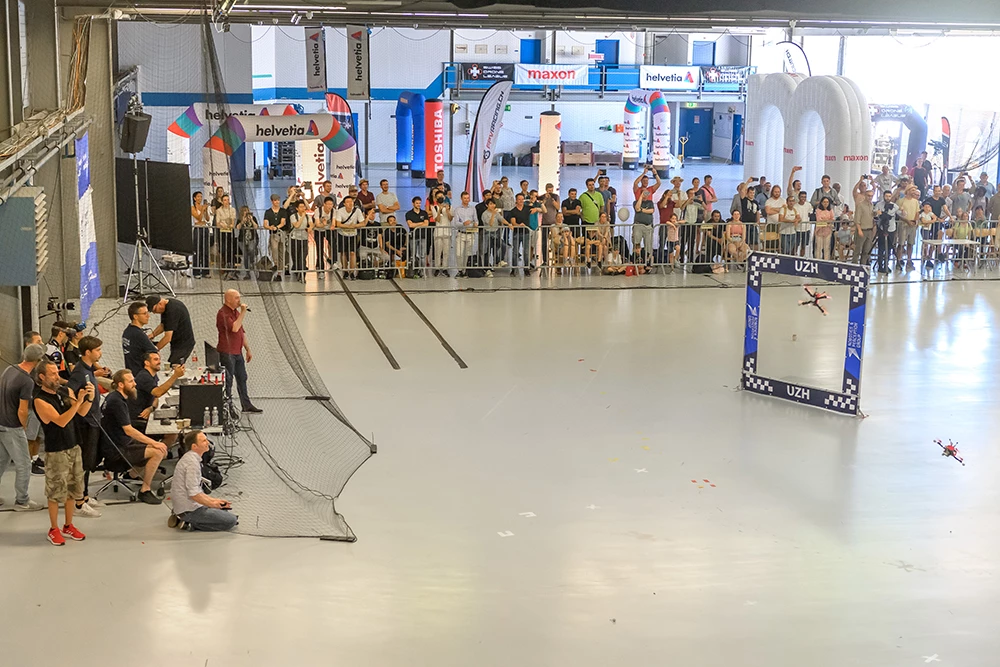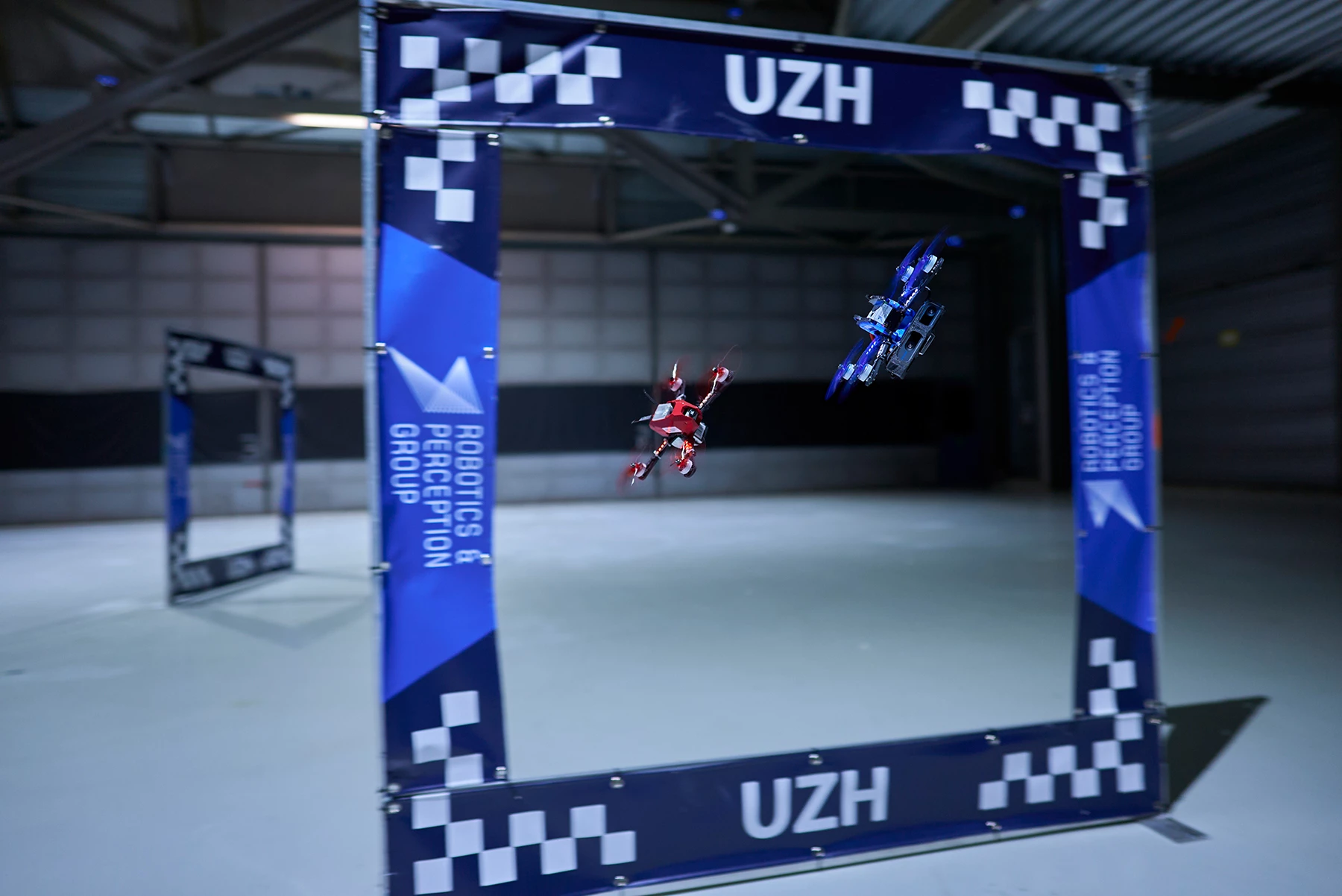High-speed drone racing has just had a shocking "Deep Blue" moment, as an autonomous AI designed by University of Zurich researchers repeatedly forced three world champion-level pilots to eat its dust, showing uncanny precision in dynamic flight.
If you've ever watched a high-level drone race from the FPV perspective, you'll know how much skill, speed, precision and dynamic control it takes. Like watching Formula One from the driver's perspective, or on-board footage from the Isle of Man TT, it's hard to imagine how a human brain can make calculations that quickly and respond to changing situations in real time. It's incredibly impressive.
When Deep Blue stamped silicon's dominance on the world of chess, and AlphaGo established AI's dominance in the game of Go, these were strategic situations, in which a computer's ability to analyze millions of past games and millions of potential moves and strategies gave them the edge.
But now, for the first time, AI has beaten some of the world's best in a real-world, physical sport. An AI system called Swift, developed by researchers from the University of Zurich and Intel, quickly learned a tight, technical 3D racetrack, and proceeded to dominate two human world champions and a three-time Swiss national champion in head-to-head racing, also setting the fastest race time.

The Swift system used the same single-camera vision setup as the human pilots to see its way around the course and through the gates, but had the advantage of also using real-time acceleration, speed and orientation data from an onboard inertial measurement unit.
It learned the fairly complex seven-gate track, complete with an acrobatic Split-S vertical hairpin turn, by running 100 drones through the track simultaneously in a virtual environment. The sim-drones began by exploring the racetrack environment, then started finding paths through it, and eventually optimized those paths to find the quickest way around. This process took less than an hour, but simulated the equivalent of an uninterrupted month's worth of real-time single-drone training.
Next, it fine-tuned its control policies using data gathered from real-world flight, to account for things like air turbulence, visual signal degradation, and other factors that create uncertainty between simulations and the real world.

And then, it laid the smackdown in the physical world, at a purpose-built 25 x 25-meter (82 x 82-ft) track in an airport hangar near Zurich.
"That was insane," gasped two-time MultiGP international World Cup champion Thomas Bitmatta as the Swift AI streaked away from him, taking tighter turns than any of the human racers and displaying inhuman precision between laps.
Its fastest lap was a full half-second quicker than the best lap a human laid down – an eternity in high-speed racing.
Having said that, the humans were better able to adapt to changing conditions; when bright sunlight lit the hangar up more than the drone was trained for, it failed. It's hard to see how further training couldn't eliminate that kind of blind spot, but the point remains: the human brain is almost endlessly adaptable. Unconventional tactics and surprise are our best bet against the robot uprising.
And there's a broader point here about the rise of AI systems; these machines can develop incredible speed and precision when given specific tasks, but the ol' necktop computer still reigns supreme when it comes to dealing with a broader range of tasks in dynamic and changing conditions. For now.
Watch the thing fly below; the video is fantastic.
Source: University of Zurich






